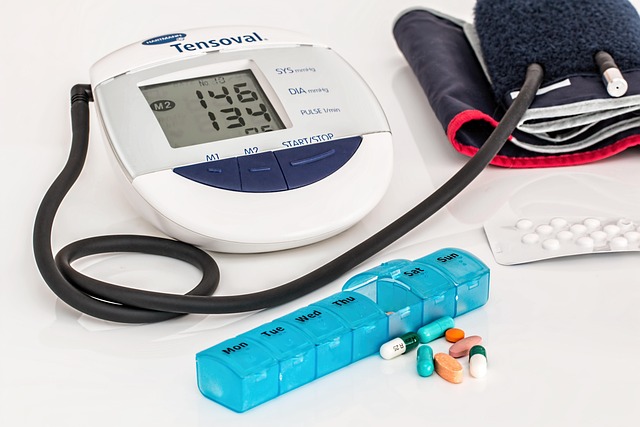Ferritin, a protein that stores iron in the body, is crucial for maintaining balanced iron levels. It serves as an indicator of both iron deficiency and excess, making it a key component of home blood testing kits like those offered by Ferritin Blood Test UK. Adult ferritin levels typically range from 20 to 80 micrograms per litre of blood; low levels suggest iron deficiency anaemia, while high levels may indicate chronic inflammation or conditions like haemochromatosis. Regular home testing enables proactive monitoring and necessary follow-ups with healthcare providers for optimal well-being.
“Discover the power of at-home blood testing with a focus on the crucial ferritin levels—a marker of iron storage in your body. This comprehensive guide, tailored for the UK, explores why understanding your ferritin is essential for overall health. Learn about the simple preparation and interpretation of results, empowering you to make informed decisions.
From convenience and accessibility to heightened personal awareness, home testing offers a new era of healthcare. Uncover the benefits and take control of your well-being with this in-depth look at the ferritin blood test UK residents are turning to.”
- Understanding Ferritin: The Importance of Iron Storage in the Body
- How to Prepare for and Interpret Your Ferritin Blood Test Results (UK Focus)
- Benefits of At-Home Blood Testing: Convenience, Accessibility, and Personal Awareness
Understanding Ferritin: The Importance of Iron Storage in the Body
Ferritin, often referred to as the ‘iron storage protein’, plays a vital role in maintaining optimal iron levels within the body. It’s a marker of both iron excess and deficiency, making it an essential component of home blood testing kits, especially when considering a Ferritin Blood Test UK. This protein functions as a reservoir, storing iron for future use, particularly during periods of increased demand, like rapid growth or pregnancy.
In the average adult, ferritin levels typically range from 20 to 80 micrograms per litre of blood. Levels below this range may indicate iron deficiency anaemia, while elevated ferritin could signal chronic inflammation or an underlying health condition. Regular home testing, facilitated by accessible Ferritin Blood Test UK options, empowers individuals to proactively monitor their iron status and take appropriate measures to maintain overall well-being.
How to Prepare for and Interpret Your Ferritin Blood Test Results (UK Focus)
Preparing for your ferritin blood test is straightforward. First, ensure you fast for at least 10-12 hours before the test. Avoid foods high in iron, such as red meat and fortified cereals, during this period. On the day of your test, wash your hands thoroughly and arrive on time to maintain the sample’s integrity.
Interpreting the results requires understanding what ferritin levels indicate. In the UK, normal ranges are typically 10-150 micrograms per litre (mcg/L) for adults. Levels below 10 mcg/L suggest iron deficiency anaemia, while consistently high levels (above 150 mcg/L) may point to conditions like haemochromatosis or an autoimmune response. Consult your healthcare provider to discuss your results and any necessary follow-ups.
Benefits of At-Home Blood Testing: Convenience, Accessibility, and Personal Awareness
At-home blood testing for ferritin levels offers a convenient and accessible way for individuals in the UK to gain insights into their iron storage. By understanding ferritin, as discussed in this article, and interpreting test results accurately, folks can make informed decisions about their health. This simple step empowers personal awareness, enabling individuals to navigate potential iron deficiencies or surpluses effectively. For those interested in a Ferritin Blood Test UK, these benefits make it a valuable tool for proactive healthcare.
